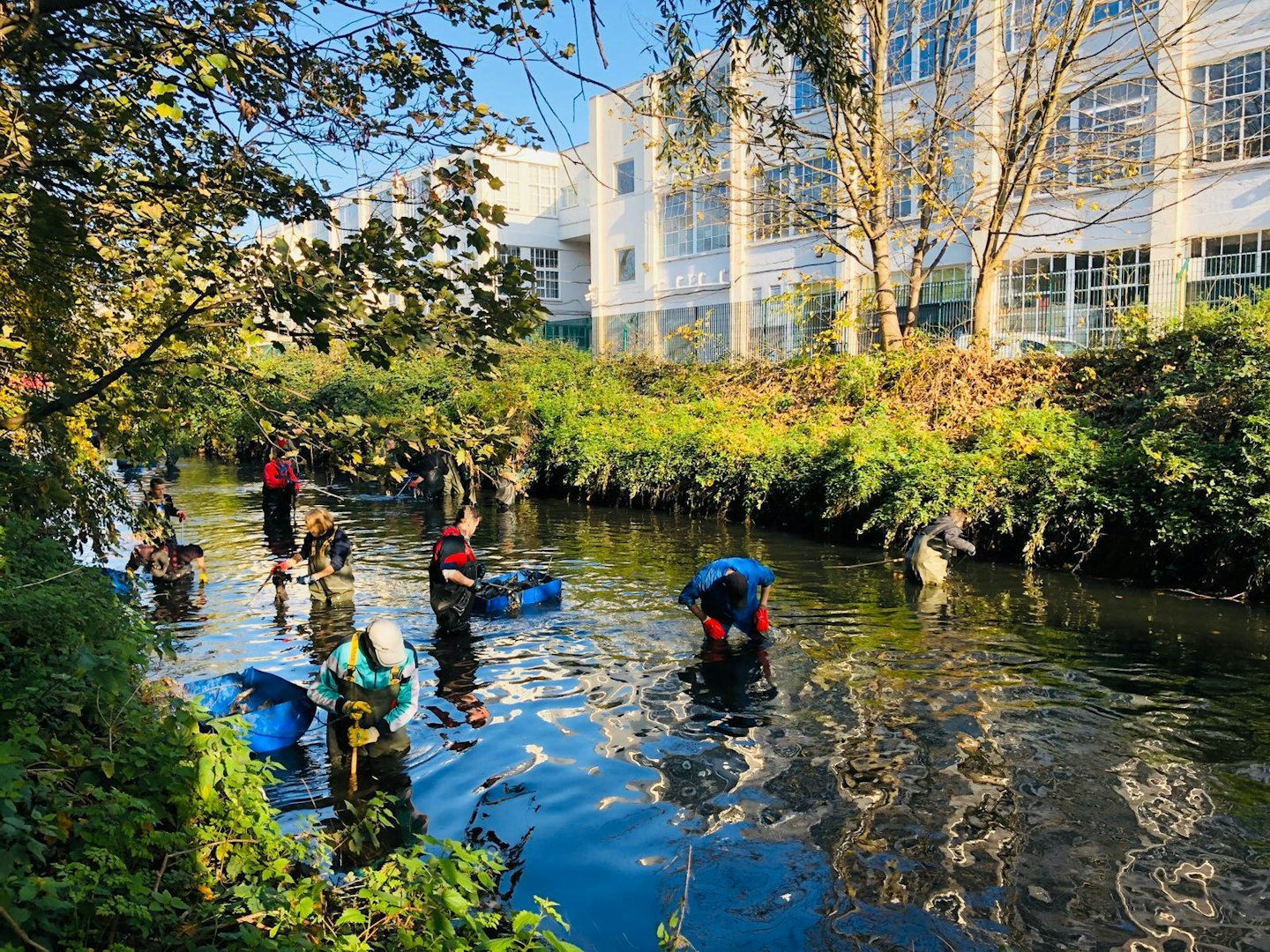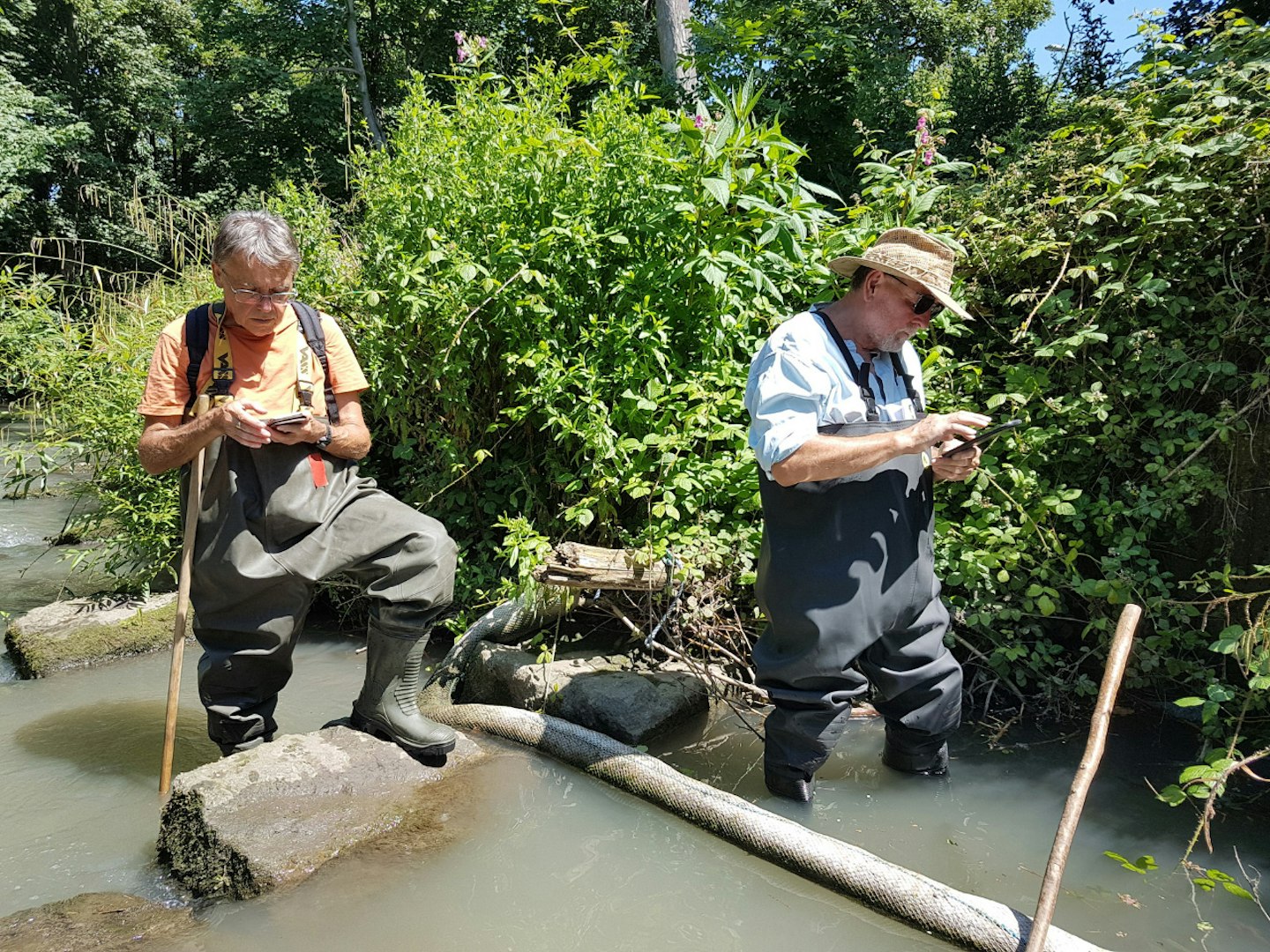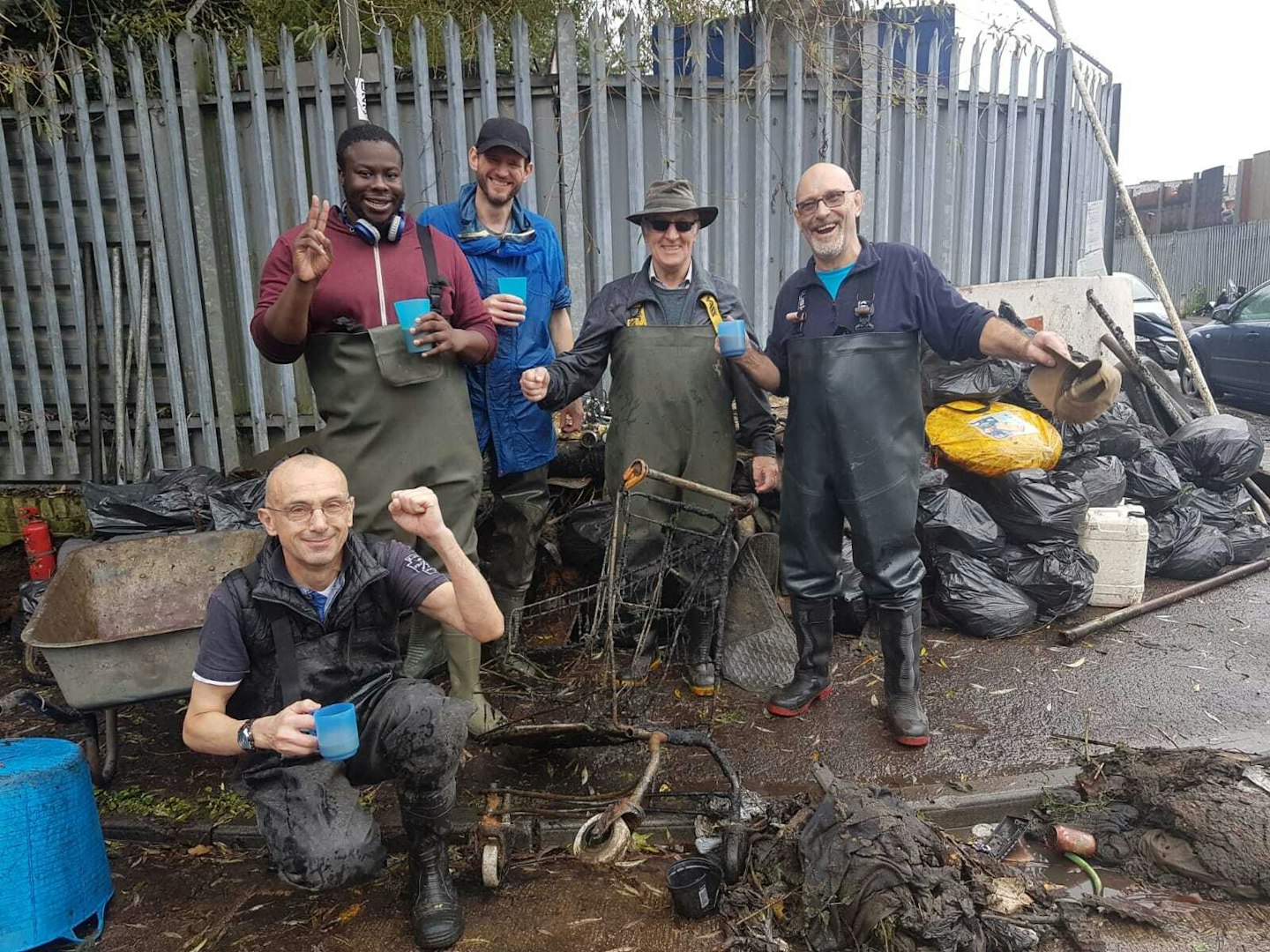If current threats to our rivers seem ominous, the brighter news is that citizen awareness and action have exploded in response.
“The plight of our rivers is no longer an afterthought, but a weekly national news item,” says Hester Liakos, acting CEO of the South East Rivers Trust (SERT), which this year is celebrating its 20th anniversary.
“Rivers are fragile, and change can take a long time, but there’s reason for hope – and public awareness is growing.”
Starting with just one member of staff and a handful of helpers on London’s River Wandle, SERT now has 30 staff and over 500 volunteers operating across 13 South East catchments from Basingstoke to Dover.

Hope for the Wandle
As the organisation’s birthplace, the River Wandle – London’s only surviving chalkstream – is an illustration of both hope and fragility. Angling Times readers will remember heart-breaking images of huge dead roach and other coarse fish as recently as 2012, following pollution. But EA surveys from 2017, 2019 and 2021 show consistent increases in fish numbers, while anglers are reporting steady numbers of 1lb-plus roach, chub and double-figure barbel.
From litter picks to removal of invasive species, volunteer efforts have been huge, says Hester. “We always welcome anglers, who are often passionately invested in their rivers. Everyone has something to offer.”

Sewage safaris & plugging gaps
Among the most crucial current battles for healthier rivers is the need to gather evidence. Across the country, a budget-starved Environment Agency isn’t capable of gathering all the necessary data.
This is where citizen effort is desperately needed to fill the gaps. Rivers trusts and angling clubs have been doing exactly this to provide the facts needed to serve our waterways better – and, in the digital era, much can be done through mobile phones and apps. Whether it’s bug life or run-off from roads, it can be detected and evidenced to empower future action.
Thanks to new technology, that process is now passing from the science lab to the public domain.
“It’s an exciting time for citizen science,” says Dr Chris Gardner, SERT’s Head of Science and Partnerships.
“The kit is now well within the price range of rivers trusts and volunteers, who can use it to identify pollution sources on their local river.
“The data can then be fed into the evidence base used by their local Catchment Partnership, so issues can be addressed.”
Other pioneering actions have included involvement in a partnership scheme known as ‘Outfall Safaris’, in which volunteers survey entire river stretches and locate outfalls, pipes and other sources of pollution so that these can be properly flagged up.
All in all, the current picture is one of more and more citizens rolling up their sleeves and deciding that rather than simply feeling angry about pollution and other ills, it’s time to get involved in the battle for the healthier rivers we all want to see.

KEY STATS
62 Number of rivers trusts now active in the UK
25p Cost of a basic water quality test kit to measure phosphates
£150 Cost of a handheld digital pollution testing device
14% The percentage of English rivers that meet “good ecological status”
40,000+ Number of volunteer hours from SERT supporters, and counting!

5 TAKEAWAYS FOR THE ANGLING COMMUNITY
Broaden the net: “No one group can do this alone,” says Hester. “We need to bring everyone together, which is why outreach is so important and why we take a catchment approach.
“Appealing to all ages, ethnicities and backgrounds is vital.”
Gather evidence, not hearsay: Data is central to making the case for healthier rivers.
Whether it’s predation impacts or pollution levels, accurate data is infinitely more powerful than hearsay!
Build bridges: There can be no “us and them”, and relationships are key,” says Hester.
“Solutions won’t come from soapbox politics, but from everyone working together.”
For anglers and clubs, this means reaching out to farmers, local councils and other water users.
Don’t leave it to someone else: Everyone can offer something. Donations are vital, but those with limited funds can often provide valuable time, skills and knowledge.
Be vigilant: Anglers are vital in reporting pollution, and a quick response could save a fishery. So save the EA hotline number (0800 807060).
To view river data where you live, including water quality and levels of pollutants, check out: https://environment.data.gov.uk/catchment-planning
